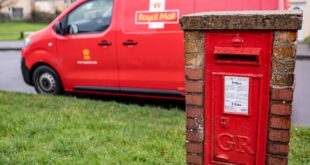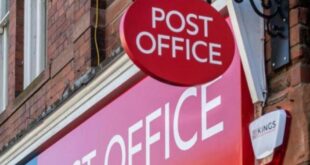Royal Mail has launched a scanner within its app to allow customers to check if a stamp is a counterfeit. Customers who scan the stamp’s barcode will be told whether it is a recognised counterfeit or not.
People who did not buy their stamps from Royal Mail, the Post Office or another reputable high street outlet are advised to scan them before use. Royal Mail confirmed it would continue to waive £5 penalties for members of the public to collect post with counterfeit stamps and try to locate and charge the sender.
It also announced it has appointed an independent arbitrator in cases requiring resolution involving the £5 surcharge. This will involve the arbitrator examining the physical stamp identified by Royal Mail as being counterfeit. Customers cannot send their stamps directly to the arbitrator without first going through the Royal Mail complaints process.
Royal Mail chief commercial officer Nick Landon said: “We continue to do all we can to protect our customers from the scourge of counterfeit stamps, and since introducing barcoded stamps we have reduced the number of counterfeit stamps in our network by around 90%. The new counterfeit stamp scanner on the Royal Mail app will help prevent customers from inadvertently falling victim to stamp fraud.
“We want our customers to buy stamps with confidence and always recommend that customers only purchase stamps from Post Offices and other reputable retailers or the official Royal Mail shop.”
The Daily Telegraph reported in April that China was allegedly flooding Britain with counterfeit Royal Mail stamps. The newspaper reported that sources close to Royal Mail said fakes from the Asian country were causing a rise in complaints that stamps bought from legitimate stores were being deemed fraudulent, which can result in the £5 penalty.
The newspaper identified four Chinese suppliers offering to print up to one million counterfeit Royal Mail stamps a week, to be sold for as little as 4p each ahead of delivery to Britain. The fakes had also been found on Amazon and eBay, and websites copying the Royal Mail official store, the newspaper said.
The Telegraph understood the stamps were being bought unknowingly by small retailers, who are allowed to buy stamps from wholesalers rather than from Royal Mail directly. A spokesman from the Chinese embassy in London called the claims “absurd”.


